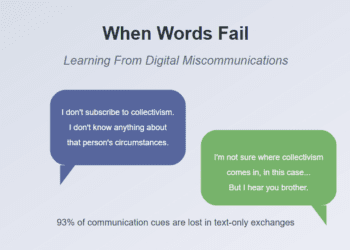In today’s fast-paced, information-driven world, the ability to think critically has become more crucial than ever for professionals across all industries. Critical thinking skills are not just a nice-to-have; they are essential for navigating complex challenges, making sound decisions, and driving innovation. In this blog post, we’ll explore why critical thinking is so vital for career success and discuss proven strategies for developing these skills.
Why Critical Thinking Skills Matter in the Workplace
Critical thinking is the process of actively analyzing, synthesizing, and evaluating information to form well-reasoned conclusions and solve problems effectively. Here are some key reasons why critical thinking skills are indispensable in the professional world:
- Decision-Making: Critical thinking enables professionals to make informed, logical decisions by carefully considering all available information, weighing the pros and cons, and anticipating potential consequences.
- Problem-Solving: With strong critical thinking skills, individuals can approach complex problems systematically, break them down into manageable components, and devise creative, effective solutions.
- Innovation: Critical thinkers are more likely to challenge assumptions, think outside the box, and generate novel ideas that drive innovation and progress within their organizations.
- Communication: The ability to think critically allows professionals to articulate their thoughts clearly, construct persuasive arguments, and communicate effectively with colleagues, clients, and stakeholders.
- Adaptability: In a rapidly changing business landscape, critical thinking skills help professionals adapt to new challenges, learn from failures, and continuously improve their performance.
| Skill | Importance | Impact |
|---|---|---|
| Decision-Making | High | Improved outcomes, reduced risks |
| Problem-Solving | High | Increased efficiency, better solutions |
| Innovation | High | Competitive advantage, growth opportunities |
| Communication | Medium | Enhanced collaboration, clearer messaging |
| Adaptability | Medium | Greater resilience, continuous improvement |
Developing Critical Thinking Skills: Best Practices
Now that we understand the significance of critical thinking skills, let’s explore some of the most effective ways to cultivate these abilities:
1. Question Assumptions
One of the hallmarks of critical thinking is the willingness to question assumptions and challenge the status quo. By actively seeking out alternative perspectives and testing the validity of existing beliefs, professionals can develop a more nuanced understanding of their field and identify opportunities for improvement.
2. Embrace Lifelong Learning
Critical thinking skills are not static; they require continuous refinement and growth. Professionals who commit to lifelong learning – through reading, attending workshops, pursuing advanced degrees, or engaging in discussions with experts – are better equipped to analyze complex issues and generate innovative solutions.
3. Practice Active Listening
Active listening is a crucial component of critical thinking. By fully engaging with others’ ideas, asking clarifying questions, and seeking to understand different viewpoints, professionals can broaden their own perspectives and make more informed decisions.
“The important thing is not to stop questioning. Curiosity has its own reason for existing.” – Albert Einstein
4. Engage in Structured Problem-Solving
When faced with complex challenges, critical thinkers often employ structured problem-solving techniques to break down the issue and devise effective solutions. One popular approach is the IDEAL framework:
- Identify the problem
- Define the goals
- Explore possible strategies
- Act on the best solution
- Look back and evaluate the outcome
By following a systematic process, professionals can ensure that they are thoroughly analyzing the problem and considering all relevant factors before making a decision.
5. Seek Out Diverse Perspectives
Surrounding oneself with diverse perspectives is essential for developing critical thinking skills. By actively engaging with individuals from different backgrounds, disciplines, and experiences, professionals can gain new insights, challenge their own biases, and arrive at more well-rounded conclusions.
6. Reflect on Experiences
Critical thinking involves not just analyzing external information but also reflecting on one’s own experiences and thought processes. By regularly taking time to review past decisions, consider lessons learned, and identify areas for improvement, professionals can continuously sharpen their critical thinking abilities.
The Bottom Line
In today’s complex and ever-changing professional landscape, critical thinking skills are no longer optional – they are essential for success. By actively cultivating these abilities through questioning assumptions, embracing lifelong learning, practicing active listening, engaging in structured problem-solving, seeking out diverse perspectives, and reflecting on experiences, professionals can position themselves for long-term growth and impact in their careers.
As Edward Glaser, a pioneer in the field of critical thinking, once said:
“The ability to think critically, as conceived in this volume, involves three things: (1) an attitude of being disposed to consider in a thoughtful way the problems and subjects that come within the range of one’s experiences, (2) knowledge of the methods of logical inquiry and reasoning, and (3) some skill in applying those methods.”
By committing to the ongoing development of critical thinking skills, professionals can unlock their full potential, drive meaningful change, and thrive in an increasingly complex world.
For more insights on critical thinking and professional development, explore these resources:
- The Foundation for Critical Thinking: A non-profit organization dedicated to promoting critical thinking in education and society.
- Harvard Business Review: Critical Thinking: A collection of articles and resources on critical thinking in the business world.
- MindTools: Critical Thinking Skills: Practical tips and techniques for developing critical thinking skills in the workplace.
By investing in the cultivation of critical thinking skills, professionals can position themselves for long-term success and make a meaningful impact in their organizations and beyond.
This article is for informational purposes only and not advice.



















































